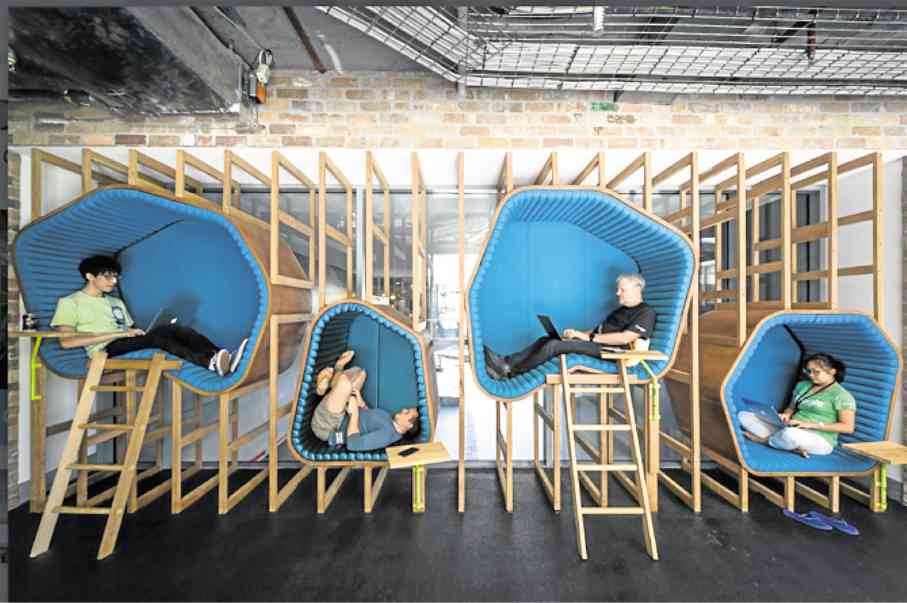Google’s secret sauce? Its people
A tip for those in the human resources industry: If you want to build a better workforce, form “hiring committees” to evaluate applicants.
It’s a method that has been working for technology giant Google for the past 18 years, says Stacy Sullivan, chief culture officer.
Before the company hires new staff members, representatives from Google’s different departments—not just the division with the vacant post—
assess these potential employees to ensure that the final candidate they choose is a good company hire, and not just a good hire for that specific position.
“Google’s secret sauce is the people we hire. Hiring the right people for our culture is more important than hiring people who are highly specialized or skilled,” says Sullivan.
The company that started in 1997 as a two-man startup—Larry Page and Sergey Brin—now has over 60,000 employees.
Sullivan became part of Google in 1999 after leading the HR team at Silicon Graphics Inc., where she worked in various HR and recruiting roles for 12 years.
Basically, the company looks at four key aspects when scouting for new hires: Role-based skills (will you be able to do the job?); controllability (how do you make choices?); critical thinking (how do you analyze data?); and leadership (will you take initiative?).
“We really want to make sure people coming in are genuine, have humility, won’t be overly concerned about their title or what they’re going to be doing right when they get here,” Sullivan says.
Of course, once you’ve found the right people for your organization, you would want to keep them, and Sullivan dishes out more tips on how to do so: Create an innovative and diverse working environment; be transparent; and allow people to speak their minds.
“Our culture is about innovation, keeping an open environment. Innovation can come from anywhere. Like, we should have our own e-mail—and that became an actual product,” says Sullivan, referring to Gmail.
Google has also become famous—or “infamous,” as Sullivan puts it—for their unusual office spaces, allowing people to enjoy rounds of ping pong or just lounge around in quirky, colorful seats.
These aren’t just perks, Sullivan clarifies, but the company’s deliberate effort to spark their employees’ creativity.
“Essentially, it encourages people to talk with other people they normally don’t work with. Like in the cafeteria (where Google provides their people with free food), we’d rather have people stay here rather than eat somewhere else so they can talk to others—like someone from sales could talk to someone from engineering or someone from finance. And again, you start to collaborate,” she says.
As for diversity, it’s one workplace issue that Google’s founders had already addressed since Day 1, Sullivan says.
“Since our user base is obviously diverse, we need to have our employee population match that. The founders, young as they were when they started the company, realized that for psychological safety, it’s important that there are others like you in the company whom you can associate with,” she adds.
Of course, as in any company, grievances will always pop up. To ensure that communication lines among everyone in the company, the founders included, are kept open, the company holds weekly “TGIF” meetings, says Sullivan, where people are free to ask anything they want.
In turn, the bosses report to their staff data pertinent to their job performance, which Sullivan says helps keep people in the loop on how the company is doing.
“We do whatever we can to give people as much information as possible—be very open, honest with them; give them all the freedom we possibly can,” she adds. “We found that if we give people freedom, they amaze us with the things that they can do.”
Ultimately, such “people decisions”—When are we going to promote somebody? How are we going to pay somebody? What types of people should we hire? Are people happy?—are approached by Google “as computer engineers do computer science,” says Sullivan.
“We experiment, gather information, talk to people. We always try to do things thoughtfully, always with data and some type of science behind it,” she says. “We find that if we really focus on [our people], we have happier and more innovative employees, which makes us more competitive. It might not work for everyone, but it certainly works for us.”



